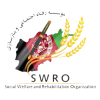SWRO Emergency Response:
SWRO has been present in Afghanistan since 2017, and operates across different provinces of Afghanistan. Currently SWRO has project experience in Kabul, Balkh, Herat, Baghlan, Bamyan provinces. SWRO operates through regional offices in Nangarhar in east, Kandahar in South, Balkh in North, Herat in the west and Bamyan in the central highlands. SWRO delivers Development Interventions in the field of Livelihoods/Economic Empowerment, Education, WASH, Women Rights, and Humanitarian Response. SWRO humanitarian response focusing on lifesaving relief to the displaced communities with cash and in-kind assistance, shelters, and water and sanitation infrastructure, food assistance whilst contributing to long-term recovery and development by providing education and skills training, investing in agriculture and livelihoods, informal Education and women rights.
Afghanistan context
Afghanistan is suffering from one of the most protracted humanitarian crises worldwide. Over 40 years of conflict and frequent natural disasters continue to undermine its population’s resilience. Returnees from Pakistan and Iran, internally displaced and chronically poor populations share inadequate basic services and scarce livelihood opportunities.
The continued deepening and geographic spread of armed conflict in Afghanistan keeps wreaking havocs amongst the population and is expected to leave over six million people in acute need of assistance in 2019. Host, long and recently displaced communities require assistance to meet their food needs, and to have access to water and sanitation facilities, as well as safe shelter and essential household items. In addition, the low capacity of the government to provide its population with basic services and meaningful opportunities hinders the country’s development, leaving 42% of the population below the poverty line.
SWRO’s work ranges from emergency relief in crisis situations to long-term development assistance. We specialize in the following main sectors:
Emergency Relief
Natural and man-made disasters have their biggest impact on the poorest populations, threatening lives, disrupting homes and schools, and harming livelihoods. SWRO responds rapidly and efficiently to deliver relief items, cash or shelter materials, and other assistance together with local and international partners.
Water, Sanitation and Hygiene
Lack of clean water, inadequate sanitation facilities, and poor hygiene practice lead to the spread of life-threatening diseases. SWRO helps communities to build or repair water systems and latrines and shares information on good hygiene practice.
Food security
Insufficient food or lack of food diversity leads to malnutrition and poor health, especially among vulnerable parts of the population such as children, pregnant women, and lactating mothers. SWRO provides communities with tools, seeds, and training to secure more effective and varied food production, preservation, and use. SWRO will seek partnership with WFP and other donors to provide food assistance to the vulnerable communities.
Livelihoods
Loss of assets due to disaster or inability to access important resources often prevents the poorest from earning their living, keeping them trapped in poverty. SWRO supports sustainable livelihoods activities by providing tools, materials, training, advice, and facilitation.
Disaster Risk Reduction
The greatest effects of natural hazards such as floods, storms, droughts, and earthquakes are felt by communities already disadvantaged by poverty. SWRO helps such communities to analyses risks and take actions to prepare for, prevent, and respond to disasters.
Education in Emergency:
The program will support school children, boys and girls who are deprived from their rights to education in the conflict settings areas. SWRO will assist them through provision of community based education, accelerating learning classes, mosque based classes. The program will enhance the capacity of the teachers through provision of ToT and will support the students in the enrollment to the schools and link up students to hub schools. Furthermore, the program will also support the schools through provision of stationery and other supportive materials.
Cluster Working Groups:
SWRO is an active member of WASH, FSAC, EiE, APC, Nutrition and Health Cluster
